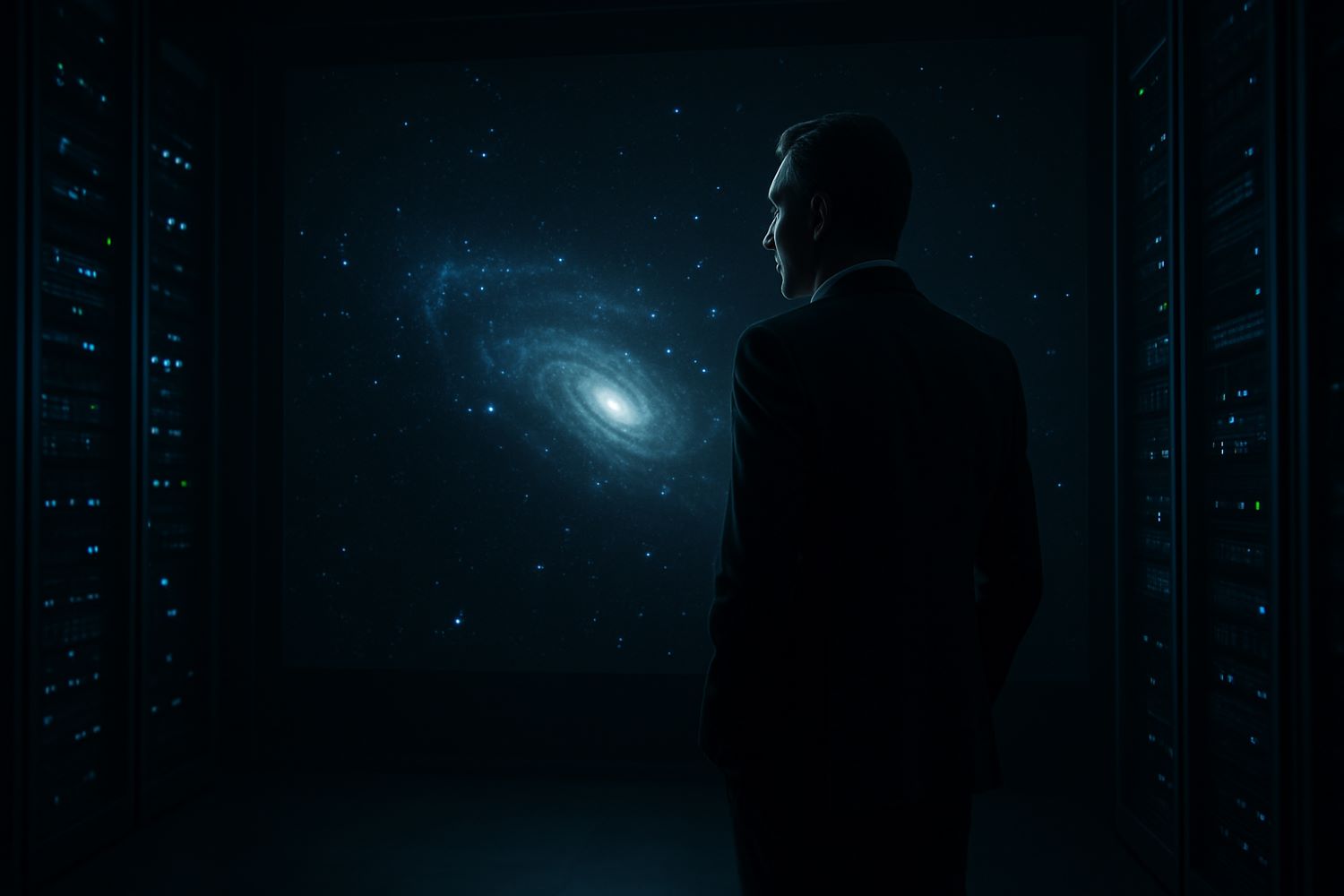Your mind wanders as you ponder the enormity of the universe. What if everything you see, touch, and know is just one elaborate simulation? This idea, known as simulation theory, suggests that our universe could be a computer-generated reality created by a more advanced civilization. Interestingly, this concept has captured the imagination of many top executives around the world. But why are so many CEOs fascinated by simulation theory?
Simulation Theory Explained
Simulation theory posits that our reality might be an artificial simulation, akin to a super-advanced video game. The concept, while modern in its technological packaging, is deeply rooted in philosophical thought. Philosophers like Plato and Descartes have long pondered questions about the nature of reality and illusion. However, the current flavor of simulation theory was popularized by philosopher Nick Bostrom in 2003.
The Argument’s Basis
Bostrom’s argument rests on the idea of “posthuman” civilizations. These are advanced societies capable of running detailed simulations of their ancestors. According to him, if such civilizations exist, there’s a high probability that we’re living in one of their simulations. He suggests three possibilities: almost all civilizations go extinct before becoming posthuman, no advanced civilization would run ancestor simulations, or we’re almost certainly living in a simulation.

CEOs and Futuristic Thinking
CEOs often find themselves at the helm of businesses in fast-changing industries. Technology plays a crucial role in shaping the present and future. This reliance on technology makes them naturally inclined to entertain bold and forward-thinking ideas like simulation theory. Their work environments encourage open-mindedness to new possibilities and innovations.
Technology’s Role in Curiosity
CEOs regularly deal with artificial intelligence, virtual reality, and other advanced technologies. These technologies bring them closer to the concept of creating hyper-realistic digital worlds. As they witness technology’s rapid evolution, it’s easier to imagine a scenario where humanity or another advanced civilization could simulate entire universes.
Leading with an Open Mind
For many top executives, keeping an open mind is crucial for successful leadership. Engaging with far-out ideas allows them to explore unconventional solutions to complex problems. Simulation theory challenges our understanding of reality, pushing leaders to think outside the box. It questions fundamental assumptions and inspires creative thinking.
Breaking Down Boundaries
In the business realm, adopting this mindset often translates into questioning established norms. CEOs are tasked with ensuring their companies stay competitive. Often, this requires breaking traditional molds and boldly exploring new territories. Simulation theory is one such mold-breaker, expanding the horizons of what’s deemed possible.
Intellectual Curiosity and Exploration
Leaders at the top often possess a relentless drive for knowledge. This intellectual curiosity prompts them to explore diverse concepts, ranging from classic philosophical questions to the latest scientific theories. Simulation theory, with its blend of scientific rigor and philosophical intrigue, offers a rich field for exploration.
Connecting the Dots
CEOs are skilled at connecting seemingly unrelated ideas to create innovative solutions. Simulation theory presents a unique intersection of technology, philosophy, and science. Engaging with such ideas can potentially lead to breakthroughs in various fields, from improving AI systems to enhancing virtual environments.
Redefining Reality and Experience
The essence of simulation theory lies in redefining reality itself. CEOs are leaders tasked with defining and shaping their company’s reality. Challenging conventional ideas about reality encourages them to rethink business models and strategies. This process often leads to innovative products and services, making them pioneers in their industries.
Augmented and Virtual Realities
Current technological advancements in augmented and virtual realities provide glimpses into how simulated worlds can exist. CEOs in tech industries are at the forefront of developing and implementing these technologies. They see firsthand how digital environments can mimic reality, making the leap to full simulations less far-fetched.
The Influence of Thought Leaders
A number of influential figures and thinkers publicly endorse simulation theory, potentially swaying other leaders to contemplate its ideas. Elon Musk, for instance, is a vocal proponent of the theory, citing advances in computing and gaming as strong indicators that our reality is likely a simulation.
Impact of Shared Thoughts
When thought leaders express interest in such theories, it can create a ripple effect among other executives. Shared exploration of such ideas fosters a culture of continuous learning and curiosity. It opens dialogues that challenge traditional ideas, leading to more open and progressive corporate environments.
Confronting Existential Questions
High-stakes leadership often involves grappling with existential questions about purpose, value, and legacy. Simulation theory taps into these inquiries on a universal scale. If our reality is a simulation, it prompts deeper questions about the nature of existence and the ultimate purpose of our actions.
Reflecting on Human Experience
For many CEOs, pondering simulation theory isn’t just an abstract mental exercise. It’s an introspective journey that leads to questions about humanity’s role in the universe. These reflections can offer fresh perspectives in understanding motivation, behavior, and connectivity, both personally and professionally.

Practical Implications of the Theory
While pondering whether our universe is a simulation might seem purely theoretical, it has practical implications. For businesses, it can drive innovation, creativity, and flexibility. For individuals, it nurtures open-mindedness, curiosity, and philosophical inquiry.
Encouraging Innovation
The idea of living in a simulation encourages technologists to push the boundaries of computer science and engineering. It fosters a drive towards creating increasingly sophisticated simulations and AI. CEOs, as visionaries, are keen to lead their companies towards such groundbreaking endeavors.
Cultivating Intellectual Humility
Faced with the possibility of being in a simulation, one is reminded of the limits of human knowledge. For leaders, this cultivates a sense of intellectual humility, prompting them to remain open to new information. It reminds them that what we know is constantly evolving.
Maintaining a Growth Mindset
Simulation theory underscores the value of a growth mindset, one that remains receptive to new ideas and change. CEOs who embrace this mindset often lead organizations that are adaptable and resilient in the face of change, key attributes for long-term success.
A Universe of Possibilities
Simulation theory isn’t merely a speculative idea for the intellectually curious. It represents a paradigm-shifting perspective, urging us to reconsider our understanding of reality. Whether we’re living in a simulation or not, the very contemplation of such an idea expands our mental horizons, inviting continual inquiry and learning.
This expanding of thought circumscribe a universe of limitless potential. CEOs who engage with this theory foster environments ripe with experimentation, creativity, and innovation, leading the charge into unknown territories with the courage to question and reimagine reality itself.




